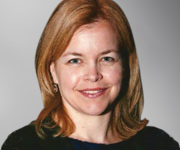THE latest issue of the MJA includes a collection of papers to be presented at the upcoming Australasian Society for Infectious Diseases scientific meeting.
In an editorial, the current president of the Australasian Society for Infectious Diseases (ASID), Thomas Gottlieb, and colleagues declare antimicrobial resistance to be a major challenge for the management of infectious diseases in Australia over the next decade and call for the development of a national “antimicrobial resistance management body” as part of an Australian Centre for Disease Control.
Researchers describe how the rapidly developing resistance of Salmonella spp overseas has affected our antibiotic choices for managing enteric fever in returning travellers.
Another editorial reminds us that new epidemics are likely to arise within our own Asia‒Pacific region, and in “Opposing views” the authors debate the potential effects on human health of the use of antibiotics in farmed animals.
The use of antimicrobials in four residential aged care facilities (RACFs) is the subject of research, which finds that 40% of antimicrobial courses are given for symptoms that do not fulfil criteria for infection, while more than 60% of infections have no specimens collected for diagnosis.
Herein lies a core dilemma in managing local antimicrobial resistance: the mismatch between ideal infection management and the reality of day-to-day infection management. Ideally, when infection is suspected, a diagnostic specimen is taken and microbiological confirmation guides prescription of targeted, narrow-spectrum antimicrobial therapy.
In reality, an often time-pressed doctor, when faced with a confused elderly patient with possible infection, knows that deterioration could be rapid and perhaps fatal, staffing — and therefore observation of the patient — may not be optimal, results for specimens will take time to come back, and there is an expectation that “something” be done.
Prescribing a broad-spectrum antimicrobial in this situation may seem practical and sensible. Unfortunately, this is more likely to promote resistance development.
This scenario is not peculiar to RACFs, but occurs in hospitals and in community practice. The question is how to reconcile the practical with the ideal.
Ideal prescribing, for a treating doctor, would require the availability of rapid diagnostic testing and local antimicrobial stewardship programs that use periodic surveillance of microbial resistance within the institution to guide antimicrobial choice.
More generally, to achieve improved infection control, we need enhanced collaboration with our Asia–Pacific neighbours, incorporating surveillance, collaborative infection control guidelines and epidemic response plans; and we need improved strategies to deal with antimicrobial use in the farming sector locally and globally.
In practice, however, it behoves all of us to consider the possibility of a future without effective antimicrobials every time we choose to prescribe one, and to pause — and, perhaps … resist.
Dr Susan Maddocks is deputy editor of the MJA. She is also a member of ASID.
This article is reproduced from the MJA with permission.
Posted 19 March 2012

 more_vert
more_vert
I am sorry! I searched in Suzan Maddocks. The spelling of the word was displayed by mistake.
Hello. I’m sorry I used this comment section without a way to contact Susan.
Did you study at Maizuru High School in Oita, 1985?
Shoko Hamada I was in the same class.Do you remember me?
I searched Suzan Blues Madox on the Internet. , I soon found your picture!
There are some photos in my house with Susan when I was a high school student. Do you remember coming back to Australia and exchanging letters with me for a while?
You always put xxxxx in the last letter, right?
Looking at the homepage, Susan is a doctor. It is amazing.
I want to receive this message to Susan.
I put an email address, I wait for reply!I am now married and my name is on behalf of Shoko Ogata.